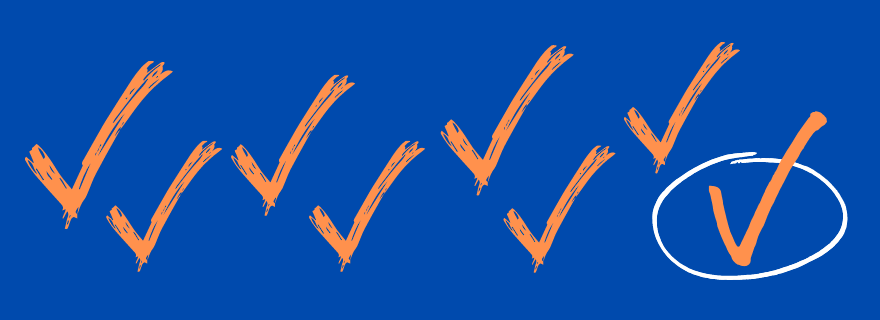The seven check marks by Joris Luyendijk
According to the book by Joris Luyendijk, the privilege of the white man can be summarized with 7 check marks. However, a rather important eighth point is missing here, which can be summarized in the word neurotypical.
Neurotypical
Neurotypical persons are those people without any indication or classification according to the DSM-5 system. That is to say, you are not considered to be a person with ADHD, dyslexia, autism spectrum disorder, or cannot be considered to fall within the DMS-5 standard in any way. A neurotypical person therefore has no neurological divergencies.
Neurodiverse
People who are not neurotypical are referred to as "neurodiverse" or "neurodivergent". Here we make a distinction between people with an indication or classification. Having a neurodiverse indication means that you suspect that you are neurodivergent or that others have expressed such a suspicion about you, without having it confirmed by an appropriate healthcare provider. A neurodiverse classification refers to it being confirmed by an appropriate organization such as the GGZ, Center for Autism or ADHD Centraal.
Why is being neurotypical a privilege?
Persons with a neurotypical indication or classification experience regular discrimination. This is due to, among other things, the need for additional aids, guidelines or a different communication style. They often desire a certain approach or treatment in order to function according to the standards of their work environment. Equity in the workplace, being treated the same way as other employees should be the ultimate goal for any employer.
Unfortunately, many people look down on others who need certain services or a specific tools to function accordingly. They are sometimes regarded to be less, pushy or unpleasant to work with.
There are also many prejudices such as that a person on the autistic spectrum cannot be social, must be a nerd or not be empathetic, that a dyslexic cannot read, a person with ADHD must always be busy that they have no willpower, and so on. These are often reasons for people not to have their indication examined. They do not want to get that label because of the chance that people will treat them differently, in a negative way, or even have the feeling that they have less chance of promotions. A manager might choose someone without a possible complication or additional necessities over you.
That's a shame, because you as a neurodivergent can actually be very good at your job, sometimes even better than someone else, but you might need specific tools to achieve this. By not examining or acknowledging neurodivergency, you might be selling yourself short and have fewer opportunities in life, as you have to work harder to achieve the same thing as a neurotypical person. Recognition and specific tools can get you there in the end.
That said, being neurotypical is the eighth point Joris has missed in his piece. A neurotypical person will not be familiar with these forms of discrimination and will not seek additional tools to achieve success. Whereas someone who is neurodivergent will, making this a form of privilege.
Of course there are other aspects that influence the chances of success for a person in this society. One can think of culture, religion and other aspects of identity. My focus is however, due to my own personal background, is explicitly on neurodiversity.
Do you have an indication or classification?
There are several places within Leiden University to reach out to in case you want additional guidance or tools regarding neurodiversity. We do our best to make the university a safe and inclusive workplace. We try to achieve this together.
You are always welcome to join the Neurodiversity Platform, ask for assistance, provide us with your own tips and tricks or start a conversation.



0 Comments